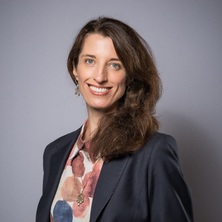Caring for someone does not come with an instruction manual.
Whether supporting a person with a disability or age-related health challenges, carers are often left to navigate their own path on a journey that can be emotional, rewarding, confusing and labour-intensive.
What started as four colleagues at the UQ Law School having “water cooler conversations” about their research and experiences caring for older relatives has become a movement with the potential to influence positive change.
Their informal chats chronicling shared experiences soon evolved into Age-Ed, a university-wide support network for care partners of older people.
And the need is clear – in Australia, around three million people take on unpaid carer responsibilities, with 1.2 million serving as primary carers.
The most recent snapshot from the Australian Bureau of Statistics also shows 391,300 young Australians under the age of 25 are now caring for ageing relatives, up from 235,300 in 2018.
Launched in March 2025, Age-Ed is built on three primary pillars:
- Providing support and connection to caregivers for older persons through relaxed social events
- Offering evidence-based information on topics relevant to caregivers and partners and connecting them with experts
- Providing a platform for researchers to understand and address the barriers faced by carers for older persons and advocate for change
The founding members of Age-Ed – UQ Law School’s Associate Professor Radha Ivory, Associate Professor Allison Fish, Dr Ruthie Jeanneret and Dr Rebecca Wallis – plan to leverage their expertise in law and healthcare, international and corporate law regulation, and criminal justice, science and technology studies to undertake research projects examining the legal perspectives of caring and carers.

“Taking on a caregiving role for an older person does not come with a user’s guide, nor does it necessarily come with the visibility or societal understanding of, say, caring for a younger person or child,” Dr Ivory said.
“I think people can feel less comfortable sharing publicly that they care for an older person and may feel reluctant to talk about those caring responsibilities at work.
“But when my colleagues and I realised we had these common life experiences and we started having conversations, a lot of valuable and practical information came to light – about how the system works, who to talk to when at certain stages and what might happen next. We saw the benefit and the opportunity for broader peer support and information sharing.”
As Australia’s population ages, the responsibility of caregiving will fall on the shoulders of family members, friends and neighbours – whether they are prepared for it or not.
“We recognise that caring for an older person, especially someone who’s cared for you, can be personally fulfilling and, at the same time, also demanding,” Dr Ivory said.
“Your responsibilities increase but the hours in your day don’t and for many, caregiving can have physical, mental and potentially financial consequences.”
While founded in the Law School and supported by faculty funding, Age-Ed welcomes participation across the UQ community.
It hosts Carers’ Cafés, social meetups to connect members of the UQ community who understand the challenges and rewards of caring for an older person.
It also organises seminars with experts across industries such as law, finance, social work and aged care, to offer practical advice and answer carers’ questions.
“The UQ Law School has been marvellously supportive. Age-Ed was funded through an internal research grant which gave us the money to launch the Carers’ Café, bring a speaker in from interstate for a seminar and pay a research assistant to assist with our first research project,” Dr Ivory said.
“On a more personal level, the Law School has created a very safe and supportive environment for us to put this initiative forward and show how it can help others and, in turn, support really impactful research.”

Understanding and advocacy are key objectives for Age-Ed, which fosters collaborations with UQ’s Age-Friendly University and Dementia-Friendly University initiatives, as well as the UQ Network for Carers of Children with Special Needs and Serious Chronic Illnesses.
“We intend to combine our legal expertise and our experience of navigating aged care systems to develop compelling research questions that cut across law, technology and public health,” Dr Ivory said.
“In our first project, we are exploring how the legal system around aged care shapes caring roles and how care partners use their agency within aged care systems.
“In future work, we are looking at the role of criminal responsibility regimes in aged care regulation, working with Professor Nadeeka Dissanayaka to investigate how the law can support residents’ mental health in residential aged care.”
Looking forward, Dr Ivory and her colleagues said they hope Age-Ed becomes a hub for research collaboration with consumers in the aged care space and a blueprint for best practice support, knowledge and information-sharing across other institutions.
A forum like Age-Ed will become increasingly vital as caring responsibilities continue to affect a growing proportion of the nation’s workforce.
“We would love to establish an Age-Ed model and see other organisations replicating it. Also, extending and sharing our research knowledge to broaden understanding and influence change – that would be an ideal outcome,” she said.
For more information on Age-Ed, including the dates of upcoming Carers’ Café social gatherings and seminars, contact Age-Ed@law.uq.edu.au.



